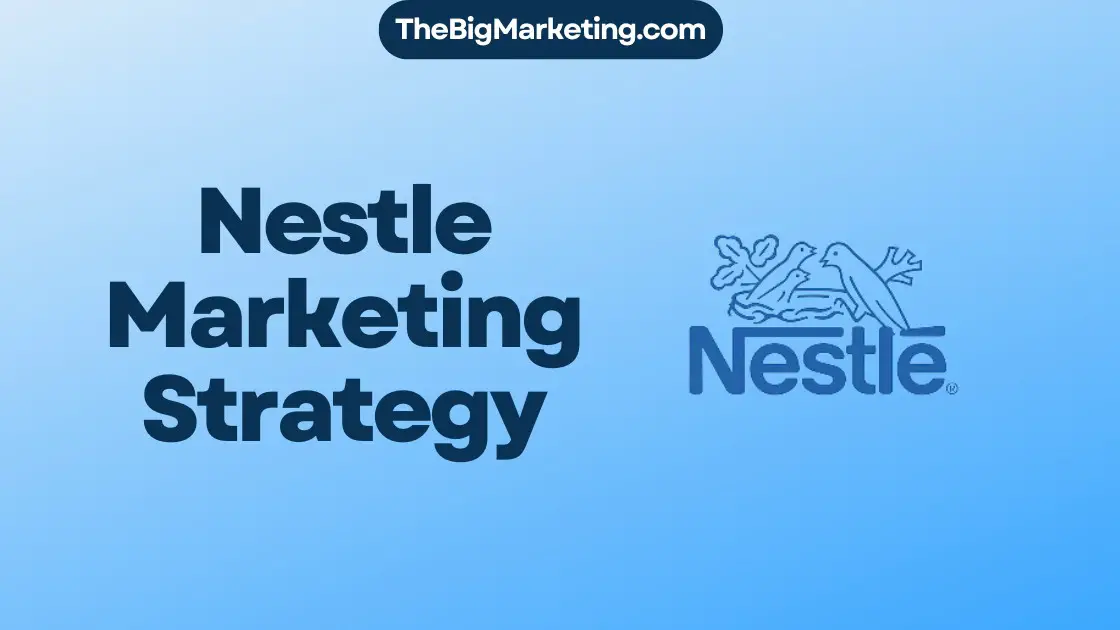Business development and marketing are two key strategies employed by businesses to drive growth and increase revenue. While both approaches share similar objectives, they differ in their focus and methods. Understanding the difference between business development and marketing is essential for effective business planning and success.
Marketing primarily focuses on the consumer journey, employing various strategies to attract, engage, and retain customers. It involves identifying consumer needs, developing marketing campaigns, showcasing value propositions, and enhancing the overall customer experience.
On the other hand, business development centers around processes and tasks that directly contribute to revenue growth. It involves activities such as sales expansion, forming strategic partnerships, evaluating competitor analysis, and identifying new market opportunities.
- Business development and marketing are distinct approaches with different focuses and responsibilities.
- Marketing concentrates on understanding the target audience, developing strategies, and promoting the brand.
- Business development focuses on sales growth, strategic partnerships, and identifying new market opportunities.
- Both business development and marketing work together under the guidance of the Chief Marketing Officer (CMO).
- An effective business strategy combines elements of both business development and marketing to achieve overall growth.
Understanding the Difference: Business Development Vs Marketing
When it comes to driving business growth, understanding the difference between business development and marketing is crucial. While both functions contribute to the overall success of a company, they have distinct focuses and responsibilities. Let’s explore the key differences between business development and marketing in more detail.
Business Development
Business development is primarily concerned with generating new business opportunities and expanding the company’s revenue streams. It involves building strategic partnerships, improving the sales process, and identifying new markets to explore. Business development professionals actively seek out potential clients, attend trade shows, evaluate competitor developments, and explore avenues for business expansion.
An effective business development strategy involves sales growth, formulating key partnerships, and maximizing profitability. By leveraging market insights and analysis, business development teams identify potential opportunities, nurture client relationships, and drive sustainable growth.
Marketing
Marketing, on the other hand, is focused on understanding the target audience, developing effective marketing strategies, and enhancing customer experiences. It involves creating brand awareness, determining customer needs, communicating product value, and facilitating consumer engagement. Marketing professionals utilize various channels and tactics to promote products and services, attract potential customers, and increase brand visibility.
An impactful marketing strategy encompasses market research, segmentation, advertising, promotions, and other activities aimed at building a strong brand and fostering customer loyalty. By delivering the right message to the right audience at the right time, marketing plays a crucial role in attracting and retaining customers.
Business Development Vs Marketing: A Comparison
While business development and marketing have different focuses and responsibilities, they work together to drive business growth. Here’s a comparison of the key differences between the two functions:
- Focus: Business development focuses on generating new business opportunities and expanding revenue streams, while marketing focuses on understanding the target audience and promoting products or services.
- Approach: Business development is more outbound, actively seeking new business opportunities through partnerships and sales initiatives. Marketing is more inbound, attracting clients through promotion and communication.
- Responsibilities: Business development professionals are responsible for sales growth, business expansion, attending trade shows, and evaluating competitors. Marketing professionals are responsible for market research, developing marketing strategies, and enhancing customer experiences.
Understanding the differences between business development and marketing allows companies to effectively allocate resources, optimize strategies, and drive overall business growth.
The Role of Business Development in Revenue Generation
Business development plays a crucial role in revenue generation for a company. Business development managers are responsible for identifying and pursuing growth opportunities. They develop and implement strategies to expand the business, establish strategic partnerships, attend trade shows, and evaluate competitor developments. They work towards increasing sales, expanding the business into new markets, and improving overall profitability. By actively seeking new business opportunities and fostering relationships, business development managers contribute to revenue growth and the long-term success of the company.
Business Development Strategies
- Identifying and pursuing growth opportunities
- Expanding the business into new markets
- Establishing strategic partnerships
- Attending trade shows and industry events
- Evaluating competitor developments
Business Development Manager Responsibilities
- Developing and implementing growth strategies
- Managing and nurturing client relationships
- Leading business expansion efforts
- Collaborating with internal teams to maximize revenue opportunities
- Analyzing market trends and identifying new business prospects
The Significance of Marketing in Brand Awareness and Customer Acquisition
Marketing plays a crucial role in creating brand awareness and attracting customers. Through various marketing strategies, such as advertising, promotions, and marketing campaigns, companies can reach their target audience and generate customer interest.
Marketing managers are responsible for overseeing marketing campaigns, implementing strategies, and managing digital marketing efforts. They focus on building brand visibility, engaging with customers, and driving customer acquisition.
Marketing efforts contribute to the success of the hospitality industry by promoting the brand and attracting potential customers.
- Identifying target audience demographics and preferences
- Creating compelling content to engage and inform customers
- Utilizing social media platforms for brand promotion
- Implementing targeted advertising campaigns
- Developing partnerships with influencers and affiliates
- Offering incentives and discounts to attract new customers
By employing these marketing strategies, companies can raise brand awareness, increase customer acquisition rates, and ultimately drive the success of their business activities.
| Marketing’s Role in Hospitality Industry Success | Description |
|---|---|
| Brand Promotion | Marketing helps to create awareness and recognition of hospitality brands among potential customers. |
| Targeted Advertising | Marketing enables hospitality businesses to reach their desired audience with precision through targeted advertising campaigns. |
| Customer Engagement | Effective marketing campaigns and strategies engage customers through various channels, fostering loyalty and repeat business. |
| Market Research | Marketing plays a vital role in gathering market insights and consumer behavior data, helping businesses understand their target audience better. |
| Economic Growth | The success of marketing efforts in the hospitality industry positively impacts regional and national economic growth by attracting tourists and generating revenue. |
The Role of Customer Experience in Professional Services
In professional services, customer experience plays a crucial role in the success of the firm. Providing a positive customer experience leads to increased customer satisfaction, loyalty, and referrals, which ultimately enhance the firm’s reputation and profitability. Customer experience encompasses all aspects of the client’s interaction with the firm, including initial contact, service quality, responsiveness, and satisfaction with the outcome.
Focusing on clear and frequent communication, building trust, understanding customer needs, and delivering high-quality services are key factors in creating a positive customer experience.
The Importance of Customer Service
Customer service is a vital component of the customer experience in professional services. It involves the interaction between the firm’s representatives and the client, ensuring their inquiries are addressed, providing guidance throughout the process, and resolving any issues that may arise. Exceptional customer service builds trust, establishes a strong rapport, and enhances satisfaction levels, which are critical for customer retention and loyalty.
Cultivating Customer Satisfaction and Loyalty
Customer satisfaction is a measure of how well a firm meets or exceeds customer expectations. Satisfied customers are more likely to become repeat clients, provide positive reviews and referrals, and foster long-term relationships with the firm. To cultivate satisfaction and loyalty, professional service firms should focus on delivering exceptional value, exceeding client expectations, and continuously improving their services based on customer feedback.
Moreover, fostering loyalty involves building strong relationships with clients and providing personalized experiences. This can be achieved through regular communication, personalized service delivery, loyalty programs, and consistently meeting or exceeding client needs and preferences.
| Benefits of Customer Satisfaction and Loyalty | Challenges of Poor Customer Experience |
|---|---|
|
|
By prioritizing customer experience, professional services firms can drive customer satisfaction, foster loyalty, and ultimately, differentiate themselves in the market. Investing in customer service training, implementing feedback systems, and continuously improving service delivery are essential steps to optimize the customer experience and gain a competitive edge.
Investing in Business Development, Marketing, and Customer Experience
To achieve a healthy and sustainable firm, it is crucial to invest in business development, marketing, and customer experience. By allocating resources and budget to these areas, companies can drive growth and enhance overall business performance.
Investing in business development allows firms to focus on sales growth, strategic partnerships, and identifying new market opportunities. Business development strategies involve expanding the business, attending trade shows, and evaluating competitor developments. These efforts contribute to revenue generation and profitability.
Similarly, investing in marketing plays a significant role in brand awareness and customer acquisition. Through various marketing strategies such as advertising, promotions, and marketing campaigns, companies can reach their target audience and generate customer interest. Marketing efforts contribute to the success of the firm by promoting the brand and attracting potential customers.
Furthermore, investing in customer experience is equally important. Providing a positive customer experience leads to increased satisfaction, loyalty, and referrals. By focusing on clear communication, building trust, understanding customer needs, and delivering high-quality services, companies can create a positive customer experience that enhances their reputation and profitability.
Allocation of Resources
When it comes to budget allocation, it is recommended that firms allocate a minimum of 10% of revenue for business development and marketing. However, for companies aiming to be high-performing and achieve significant growth, a higher percentage of budget allocation, between 15% and 20%, is advised.
By investing in all three areas—business development, marketing, and customer experience—and monitoring progress, firms can align their strategies with company objectives and maximize their return on investment. This holistic approach ensures that resources are allocated effectively to drive growth and improve overall business performance.
| Investment Area | Key Elements and Strategies |
|---|---|
| Business Development |
|
| Marketing |
|
| Customer Experience |
|
Building an Effective Business Development and Marketing Team
Building an effective business development and marketing team requires a clear understanding of the distinct roles and responsibilities in each area. This ensures that the team functions efficiently and drives the company towards its growth objectives.
In the realm of marketing, a well-rounded team typically includes positions such as marketing managers, social media managers, and content creators. These individuals are responsible for developing and implementing marketing strategies, managing online presence, and creating engaging content that resonates with the target audience.
On the other hand, a business development team comprises business development managers, pursue managers, and sales enablement managers. This team focuses on generating new business opportunities, establishing strategic partnerships, and driving revenue growth for the company.
The size, budget, and industry of the firm will determine the specific team structure. However, allocating adequate resources and defining clear roles and responsibilities are crucial steps in building an effective business development and marketing team. This ensures that each individual understands their contributions and works collaboratively towards achieving common goals.
By fostering a cohesive and productive team environment, businesses can leverage the strengths of each department to maximize their business growth potential. Through effective communication and collaboration, a well-structured business development and marketing team can lay the foundation for long-term success.

Roles and Responsibilities in Business Development and Marketing Teams
Within a business development team, specific roles and responsibilities may include:
- Business Development Manager: Identifying growth opportunities, creating and implementing business development strategies, and cultivating strategic partnerships.
- Pursue Manager: Managing the pursuit of new business opportunities, coordinating efforts between various internal departments, and ensuring efficient project management.
- Sales Enablement Manager: Equipping the sales team with the necessary tools, information, and training to effectively engage with potential clients and close deals.
In a marketing team, roles and responsibilities may include:
- Marketing Manager: Developing marketing strategies, overseeing campaigns and initiatives, and evaluating their effectiveness.
- Social Media Manager: Managing social media platforms, creating engaging content, and interacting with the online community to enhance brand visibility.
- Content Creator: Generating compelling and informative content across various channels, including blogs, videos, infographics, and more.
Each role within the business development and marketing teams contributes to the overall success of the company. By clearly defining the roles and responsibilities of team members, businesses can ensure that everyone is aligned and working towards achieving the company’s objectives.
Skills and Qualifications for Business Development and Marketing Professionals
Business development professionals play a vital role in driving growth and expanding revenue opportunities. To excel in this field, they must possess a diverse set of skills and qualifications:
- Data Analysis: Proficiency in analyzing market trends, customer data, and competitor strategies to identify growth opportunities.
- Communication: Excellent verbal and written communication skills to effectively interact with clients, team members, and stakeholders.
- Problem-Solving: Strong problem-solving abilities to navigate complex business challenges and develop innovative solutions.
- Collaboration: Ability to work collaboratively with cross-functional teams to develop and execute business growth strategies.
- Dedication: High level of dedication and commitment to meeting targets and achieving business objectives.
On the other hand, marketing professionals are responsible for creating brand awareness, attracting customers, and driving customer acquisition. Here are the key skills and qualifications they require:
- Communication: Excellent communication skills to effectively convey marketing messages and engage with target audiences.
- Creativity: Innovative thinking and creative problem-solving skills to develop impactful marketing campaigns and strategies.
- Industry Knowledge: In-depth understanding of the industry landscape, consumer behavior, and market trends.
- Market Segmentation: Proficiency in segmenting target markets and tailoring marketing efforts to specific customer segments.
- Innovative Thinking: Ability to think outside the box and come up with unconventional marketing approaches to stand out in the market.
The specific qualifications for business development and marketing roles may vary based on the organization and position. While a Bachelor’s degree in Business Administration or Marketing is often preferred, relevant certifications in sales, marketing, or related fields can also enhance a professional’s qualifications.
It is crucial for both business development and marketing professionals to continuously update their skills and stay informed about industry trends. This ensures that they remain competitive and can effectively contribute to the growth and success of their respective roles.
Business Development and Marketing in the Hospitality Industry
In the hospitality industry, both business development and marketing play crucial roles in driving growth and staying ahead of competition. Business development involves reassessing procedures, identifying new target markets, and thinking of new offerings to increase profitability. Marketing focuses on creating brand awareness, advertising, and promoting the company to entice customers.
Both disciplines work together to ensure successful growth strategies in the hospitality industry, with business development managers identifying growth opportunities and marketing managers promoting the company and attracting customers.
Growth Strategies in Hospitality
Implementing effective growth strategies in the hospitality industry is crucial for sustained success. These strategies may include diversifying service offerings, targeting new markets, enhancing customer experience, and leveraging digital marketing strategies. It is important for businesses in the hospitality industry to stay informed about market trends and consumer preferences to adapt and innovate in this dynamic industry.
Business Development and Marketing Roles in Hospitality
Within the hospitality industry, there are various roles in business development and marketing that contribute to the overall success of a company. Business development managers are responsible for identifying growth opportunities, building strategic partnerships, and driving revenue growth. Marketing managers, on the other hand, focus on creating brand awareness, developing marketing strategies, and attracting and retaining customers through effective promotional activities.
By aligning business development and marketing efforts, hospitality businesses can optimize their growth strategies and position themselves as industry leaders.
Conclusion
In conclusion, understanding the difference between business development and marketing is essential for driving overall business growth. While marketing focuses on the consumer’s journey and building brand awareness, business development focuses on revenue generation and strategic partnerships. Both departments play vital roles in achieving business success and work together under the guidance of the Chief Marketing Officer (CMO).
Business development professionals are responsible for identifying growth opportunities, expanding the business, and increasing sales. On the other hand, marketing professionals focus on understanding target audiences, developing effective strategies, and attracting customers through various marketing techniques.
Investing in business development, marketing, and customer experience is crucial for long-term success. By allocating resources and budget to these areas, companies can drive growth, improve performance, and align their strategies with company objectives. Building effective business development and marketing teams with clear roles and responsibilities is also essential for success in these areas.
FAQ
What is the difference between business development and marketing?
Business development focuses on processes and tasks that grow revenue opportunities, such as sales growth, business expansion, and strategic partnerships. Marketing, on the other hand, focuses on identifying consumer needs, developing strategies, showcasing product value, and facilitating communication with customers.
How do business development and marketing work together?
Both departments work together under the guidance of the Chief Marketing Officer (CMO) to achieve overall business growth. While business development focuses on generating new business opportunities, marketing helps attract clients through promotional efforts and communication strategies.
What is the role of business development in revenue generation?
Business development managers are responsible for identifying growth opportunities, expanding the business into new markets, and establishing strategic partnerships. They play a crucial role in increasing sales and improving overall profitability.
What is the significance of marketing in brand awareness and customer acquisition?
Marketing plays a crucial role in creating brand awareness and attracting customers. Through various marketing strategies, companies can reach their target audience and generate customer interest, ultimately driving customer acquisition.
What is the role of customer experience in professional services?
Customer experience plays a crucial role in the success of professional service firms. Providing a positive customer experience leads to increased customer satisfaction, loyalty, and referrals, enhancing the firm’s reputation and profitability.
Why is it important to invest in business development, marketing, and customer experience?
Investing in business development, marketing, and customer experience helps drive growth and improve business performance. Allocating resources and budget to these areas enables firms to align their strategies with company objectives and maximize return on investment.
How do I build an effective business development and marketing team?
Building an effective business development and marketing team requires a clear understanding of the distinct roles and responsibilities in each area. Allocating resources and defining roles based on the firm’s size, budget, and industry is crucial for success.
What skills and qualifications are needed for business development and marketing professionals?
Business development professionals require skills such as data analysis, communication, problem-solving, collaboration, and dedication. Marketing professionals need skills like communication, creativity, industry knowledge, market segmentation, and innovative thinking. Qualifications can range from a BS or BA degree to certifications in sales, marketing, or related fields.
How do business development and marketing contribute to the hospitality industry?
In the hospitality industry, business development involves reassessing procedures, identifying new target markets, and thinking of new offerings to increase profitability. Marketing focuses on creating brand awareness, advertising, and promoting the company to entice customers. Both disciplines work together to ensure successful growth strategies in the hospitality industry.
What is the summary of this article?
This article provides a complete guide to understanding the difference between business development and marketing. It explores the roles of business development and marketing in revenue generation and brand awareness. It also highlights the significance of customer experience, the importance of investing in these areas, and how to build effective teams. Additionally, it discusses the skills and qualifications required for business development and marketing professionals.







